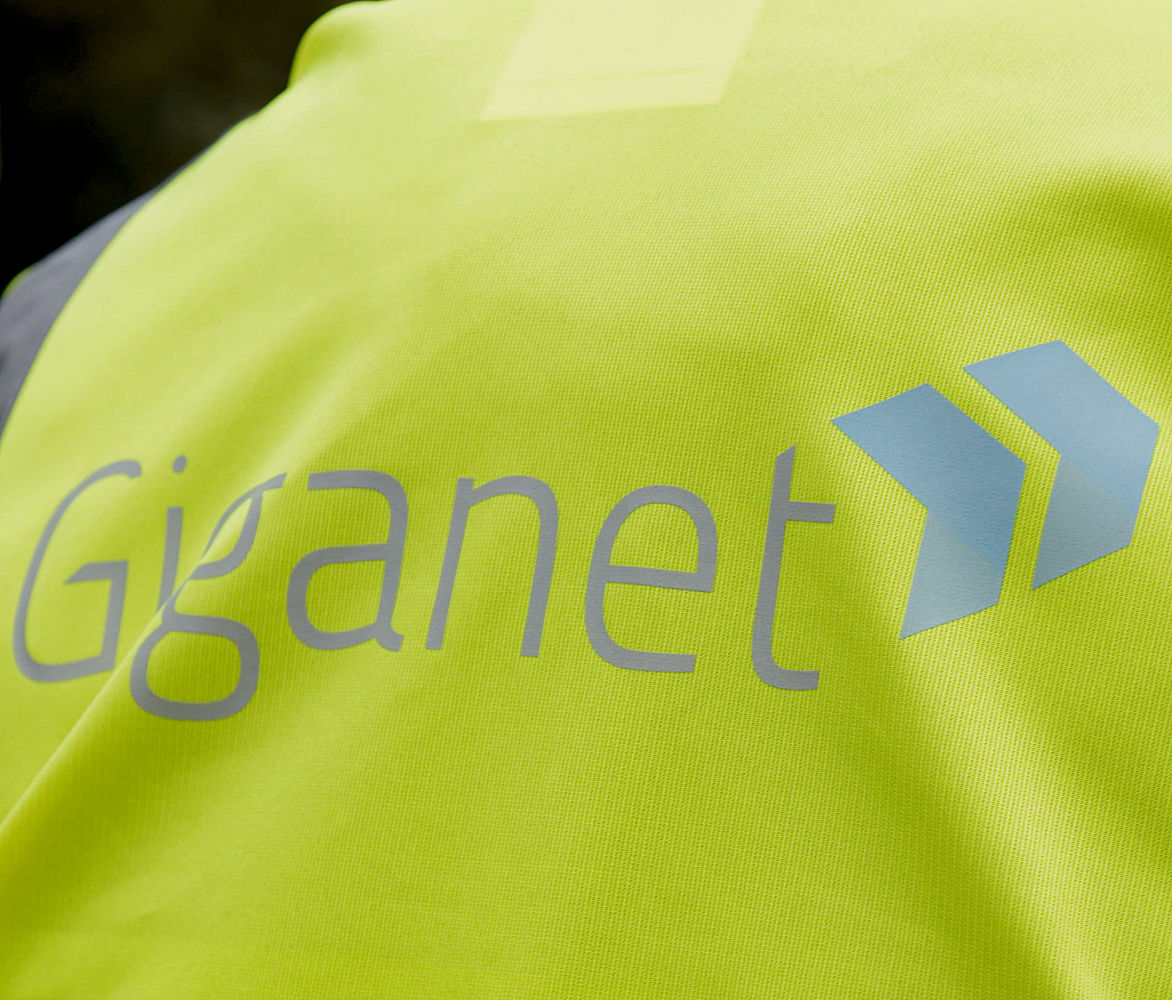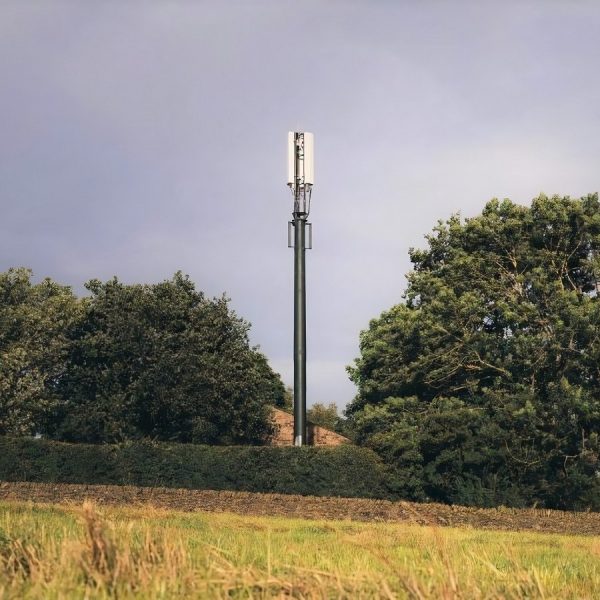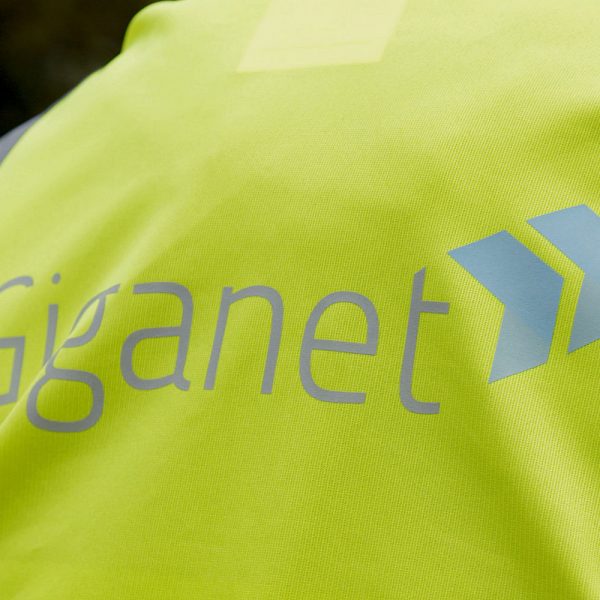Gigaclear Claim 1 in 5 Brits Wait 30 Mins for a Web Page to Load

Rural full fibre broadband ISP Gigclear has posted the results of an interesting new survey, which questionably claims that a fifth of British people wait “over half an hour for a simple web page to load” and 1 in 10 are “left buffering for up to two and a half hours.” Hmm.
At this point we should say that Gigaclear haven’t said when, where or how their survey (here) was conducted and nor have they revealed any information about who or how many people responded (demographics, connection types etc.). We think these are important questions to ask because, at first glance, the headline claims don’t make much sense.
Unless you’re still on a dialup line from 20+ years ago, a “simple web page” will not normally leave you waiting 30 minutes+ to load. In fact, using the front page of ISPreview.co.uk as an example of a fairly “simple page” (c.1MB in total size), even a 50Kbps dialup connection from the late 1990s should be able to finish loading that in about 3 minutes. But these days even some of the very slowest sub-1Mbps lines are still several times faster than that and only a tiny proportion of people are stuck with those.
Likewise, we have an issue with the claim that 1 in 10 people are left buffering for up to 2:30 hours. The vast majority of us would quickly stop trying to watch and admit defeat if a stream ever started buffering for longer than a few seconds (some platforms will auto-fail completely if this goes on for more than 1 minute – experiences vary). Lest we forget that buffering can also be caused by issues other than speed, such as DNS, CDN or routing/peering faults.
At this point we assume that Gigaclear MUST be missing out some crucial context. For example, maybe by “buffering” they actually mean “downloading” (a subtle but very important distinction). Similarly, it’s possible that the reference to waiting 30 minutes+ for a web page to load is a total value of accumulated time, as measured over a longer period (a week, a month?), but they don’t say.
Key Highlights from Gigaclear’s Survey
* One HD film in rural areas takes an average of 55 minutes to download – almost twice as long as in urban areas.
* 70% of people regularly have problems with their internet, with over a quarter losing connection entirely several times a week, and almost 10% losing access every single day.
* 1 in 10 UK adults admit to feeling very stressed every single time they use their internet. With the average Brit using the internet for almost 5 hours each working day, this means that many are feeling stressed for almost half the day, every day, due to poor broadband.
* A quarter of Brits admit that broadband speeds have had a detrimental effect on their family lives. One in five say the internet has had a negative effect on their finances, with “many” also feeling the effect on their careers and their physical health. One in ten have introduced family rotas for internet usage to reduce stress levels.
* 27% of UK households have a minimum of three people using the internet at any one time.
* On average, Brits have 6 different smart devices connected to their internet service at any one time. The most common devices are laptops (54%), followed by phones (50%) and tablets (48%).
As usual there are also some familiar problems with saying that “70% of people regularly have problems with their internet.” In short, this could equally be a reflection of consumer choice (e.g. taking a slower / cheaper package, when faster options may exist), slow WiFi, other local network problems or performance issues with remote internet servers (i.e. not your ISP’s fault). Sadly, we don’t get a clear definition of what is meant by “regularly“, so take with the usual pinch of salt.
Gareth Williams, CEO at Gigaclear, said:
“The research clearly demonstrates the significant impact that poor broadband speeds are having on people’s lives. Given the majority of the British workforce is at home, either working or on furlough, the pressures on the internet continue to increase.
That being said, there is a huge gap between expectations and performance. Modern consumers have come to expect a certain level of connectivity, but for some broadband providers, the strain this is putting on performance is too much, and they simply can’t keep up. This needs to change.”
Gigaclear of course has a vested interest here because they’re currently deploying 1Gbps capable Fibre-to-the-Premises (FTTP) networks across some fairly remote rural areas, which – despite some very lengthy delays – is usually a very welcome broadband improvement, once it actually goes live.
Mark is a professional technology writer, IT consultant and computer engineer from Dorset (England), he also founded ISPreview in 1999 and enjoys analysing the latest telecoms and broadband developments. Find me on X (Twitter), Mastodon, Facebook and Linkedin.
« DrayTek Interview – A Brief Look Inside a Router Manufacturer
Latest UK ISP News
- FTTP (5515)
- BT (3514)
- Politics (2537)
- Openreach (2297)
- Business (2262)
- Building Digital UK (2244)
- FTTC (2043)
- Mobile Broadband (1973)
- Statistics (1788)
- 4G (1664)
- Virgin Media (1619)
- Ofcom Regulation (1461)
- Fibre Optic (1395)
- Wireless Internet (1389)
- FTTH (1381)





























































Sounds like made up Fake news – it April fools days ? even the OFCOM Data which is regularly well out of date when published paints a better view than that . Stats pretty clear on Broadband coverage right across the U.K. definitely broadband not spots but it’s less than a few % of the UK -Love them to explain who they asked and how many ….
Indeed! I can’t see this being possible in a world where people need to go and pay £4 for a coffee they can make themselves but don’t want to make time for.
30ms would have been more convincing!
These types of reports are incredibly useless & mostly just PR nonsense. As you said there’s no clear indication to things as I know myself and many others (me being 23 and my parents being 60) if a video takes over a minute to load we just turn it off and try another one or refresh the page 1-2 times in case it’s an issue on the others end which may re-route.
Looking at this in a case by case basis:
1) yes, this is to be expected as most Rural areas either don’t have fibre, or any decent connections other than 4G. However, context is missing as they didn’t state whether this was a mix of ADSL or Wireless carriers.
2) This one is a bit tricky, are they using 3/4G? Are they in heavily congested areas? Are they rural or urban? Are they on basic packages like Sky’s Essentials 10Mb with multiple devices online constantly?
3) Are we sure this is ACTUALLY poor broadband or just uneducated people trying to blame their broadband for an issue with the hardware/connection to said device?
4) Of course it will reflect on their finances, broadband usually comes bundled with other things like a TV service/Phone so of course it’s going to negatively impact their finances. It’s a service they pay for. Again, the stress going through the roof is definitely something which should be managed in itself anyway. However if you’re claiming it’s due to broadband but could be Data caps? 3/4G? WiFi/hardwired? What’s the actual speed they pay for?
5) Ok?
6) This is expected, more and more rely on mobile phones and tablets are just convenient for reading/other things.
Nothing is actually explained by Gigaclear, my honest opinion this was a half arsed release to put their name in Papers/online articles, making it look like they care for every single Briton who search up Gigaclear and discover they’re available in their area/register interest.
More like GigaUnclear…
I’m tired of ISP run “surveys”
‘over a quarter losing connection entirely several times a week, and almost 10% losing access every single day.’
Do the ISPs recognise this?
If someone was waiting 30mins for a page to load they would consider they had lost connection way before 30mns.
What a lot of nonsense Gigaclear have put out. Press Releases like this make one doubt the competence of the provider.
I can understand why Connecting Devon and Somerset cancelled their contract with the company.
Exactly this! Reading this article has lowered my personal impression/reputation of Gigaclear.
I thought they were good, now I think their incompetent, and unaware of the market and customer use cases. Obviously there are clearly some employees who know their stuff, but this just adds more fuel to the fire about a how poorly run the company is. If a marketing and PR department get this data ready to publish, someone else in the company should have stopped them. It makes them look stupid.
And Lot 1 in Scotland waits 8 extra months for the R100 contract to download due to Gigaclear buffering the award. Maybe Gareth would care to comment on that.
If its “research” then presumably they will publish the full data and methodology.
Gigaclear are specialists in making people wait.
“* 70% of people regularly have problems with their internet, with over a quarter losing connection entirely several times a week, and almost 10% losing access every single day.”
At first glance, you might say “seriously” and you’d be right. But many don’t know the diffference between wifi issues, cdn or dns!.
Wifi issues alone cause more problems than many realize. From poor (modem) wifii-routers to channel issues to poor placement. All of those are probably a greater issue that actual line speed.
Many don’t realise that they do not have to run isp supplied router.
Further ofcom, should make isp provide modem router’s have unlocked usernames/pws and also a modem bridge mode so that we reduce the waste. Also allowing the user to reject isp routers at signup (BT retail are the worst offenders).
I agree, in an attempt to make things “simpler” for the customer they are making things worse like restricting 2.4 to channels 1 6 and 11 and not allowing the 2.5 and 5 to be separated. So a common issue I come across is capable 5Ghz devices arbitrarily connecting at 2.4Ghz and suffering from multiple ISP 2.4 signals from their neighbours on the same 3 channels. So instead of moving to less interference and better performance we aren’t.
Its only that most of our broadband is so slow its not noticeable.
Using a ISP provided Router is probably best for the majority of customers to avoid service issues but my view is they need to be made aware that regardless of the hype cable is often still best and that separate/suitably positioned WIFI APs or Mesh (that they own) is the way forward for their wireless devices.
@ Meadmodj
Channels 1,6 & 11 are the only non overlapping channels in 2.4Ghz WiFi spectrum.
Locking to these 3 channels is both sensible and good neighbourly
@Jim Weir. The overlapping channels may be far from perfect but if you have a problem with neighbours using all of these from different directions you can at least just about get a working 2.4 working within your walls or better still everyone move to 5 and turn off 2.4 to minimise interference.
@Meadmodj That’s not how it works. If you use an overlapping channel then you will get and cause interference on all the channels you overlap with, causing WORSE performance, as your router cannot see traffic not on the same channel and will try to transmit at the same time.
Yes it might seem to work, but at the cost of ruining your neighbours experience and less reliable performance in general.
@Alex Atkin. I agree but that’s where we are. I prefer a separate 5Ghz system and to move to 5Ghz system (both AP and Mesh). However for many users they are depending on a single ISP router on 2.4 due to their older devices. Each main ISP appears to default to a channel like VM=6, BT=11 and TT/Sky=1 although they will hop if a conflict is detected. Depending on the density of housing, building materials and position (against an joining wall) a home can be adversely affected on all three channels. In the rooms close to the persons router will be stronger but in more distant rooms the foreign WIFI signal may win. Therefore an overlapping channel is the only nil cost option. Unfortunately this is not available on some ISP routers and the interference has become worse as ISPs have sought to increase the router range.
It would make more sense if that were an accumulated total over a week/month/year or something like that.
I think Gigaclear have put this out because they have nothing else to report. Many of us in the areas they have been awarded under BDUK contracts have been waiting years for their delayed roll-out!
As Gareth Williams says “there is a huge gap between expectations and performance”.
No, this is completely nonsensical!! The page wouldn’t take 30 minutes to load even under dial-up connection!
This is simply a marketing propaganda as they want to attract customers to join Gigaclear in rural areas. Sure many people in rural areas have poor connectivity. But even if they had 1Mbps download the page will not take 30 minutes to load! Maybe 2-4 minutes may be the longest that can take for certain heavy websites.
Actually I have to admit when I had ADSL 12Mbps before the FTTC upgrade sometimes even when my connection dropped to 100Kbps (0.10Mbps) in speed test due to SNR issue dropping to 1-2dB with my EO Line back before the fibre cabinet upgrade.
Yes, I had problems with pages loading and it lasted for about 2-3 minutes, it was almost unusable until SNR recovered back to 6-9dB and returned my speeds back to normal 12Mbps. But I was still able to play online chess using certain sites like FICS without any interruption with almost dial-up connection speeds.
Now I have FTTC and get 80/20Mbps and I must say there isn’t a very big difference when it comes to pages loading between 80Mbps that I now have vs 12Mbps. The difference is only noticeable when compared to 1-2Mbps and dial-up 56/128Kbps.
Perhaps I can only notice 5-10 seconds quicker page loading in Facebook.
The fact is, if 96% of the UK has access to FTTC, this will mean that it simply wouldn’t be true for 1 in 5 Brits to have to wait 30 minutes. Even in dial-up days in the year 2000, I don’t remember having websites to load for this long!
If you look at a typical Apache2 web server configuration (the majority of web servers use Linux based Apache2 or perhaps NGINX servers), you’ll notice that its mod_reqtimeout configuration usually specifies its settings in seconds. E.g it uses the following defaults:
RequestReadTimeout handshake=0 header=20-40 body=20
This is nowhere near the 30mins claimed by Gigaclear!
Makes sense. If connections are actually that slow they are performing Slow Loris attacks on the servers.
Frankly if our connection was this bad that meant 1 in 5 can’t load a web page within less than 30 minutes then the UK would’ve upgraded our connections to FTTP many years ago on an emergency basis!
The fact that most of us on FTTC are generally happy with our connection is enough evidence why we don’t have enough FTTP coverage.
Most people know FTTP is not an emergency situation. It would’ve been an emergency if we were still on dial-up internet. But those days are over.
Ok, perhaps I am wrong if we look at those below 2 Mbps down: 0.51%. That’s less than 1% of the UK that cannot achieve 2Mbps and even then the web pages will not take 30 minutes to load. 96.77% of the UK has FTTC access. Less than 4% are still on ADSL.
Yes this Gigaclear statement is garbage but as our broadband speeds increase there is an issue coming. Web pages are becoming increasingly bloated with rubbish, larger in content size by default rather than on request with no real thought regarding the performance of the hosting site (big and small). They also estimated that if the Internet was a country it would be 5th in power consumption. Like all resources it needs to be used wisely and having 1 Gig Broadband isn’t going to be much good if the content is not efficiently delivered.
I recall exactly the same being said during the move from dialup to broadband and from standard broadband to ultrafast.
The Internet isn’t so bad. Cryptocurrency mining is a nightmare for power consumption. The actual routers and switches continue to dramatically improve in efficiency.
IP profiling on bad adsl lines is also a killer and a afr more crippling issue for us on our old line than the slow ‘normal’ speed. Suffered for years with the DSLAM agressively limiting our connection and due to the random but persistent noise it’d stay low for weeks
I’d wager a lot of people don’t even know why, where or how to check.
The TalkTalk connection at my parents house behaves like this. It’s capable of 17mbps but most data trickles through and TalkTalk seem to lose too many packets (but not the overall connection)
Some people commenting here seem to be using their experience of better connections to ignore how bad many British internet connections are.
This may be the case but many people claim to have “bad” or slow Internet when in reality the Internet connection is fine, but WiFi or lack of understanding is the problem.
I’m with TalkTalk FTTC and the connection is fine. The problem is more related to the line, as your parents house use ADSL.
Take a look at their line length from their home to the local BT Exchange. ADSL is prone to having problems due to line length, noise margin issues such as interference, connection drops that trigger DLM interleave and drops in speed.
I had tons of problems on EO Line before the Fibre upgrade for years. Regardless of which provider I had whether Sky, Plusnet, BE Unlimited*, Tiscali, etc ADSL has always been an extremely frustrating experience.
And I can almost guarantee you that no provider or router quality will change that. Top end router or ISP will be of no difference if the line is bad due to picking up noise.
If however, your parents have access to FTTC and switch to that, the performance will immediately improve even if they stayed with TalkTalk. Simply shorter copper length and noise being filtered out at the cabinet.
Many people also use WiFi instead of Ethernet cable and that’s another problem. One of my Microsoft mobile phone device on WiFi can only achieve 53Mbps and 13ms ping while another phone gets around 78Mbps. But when we connect all our 3 PCs with Cat5/6 cables we get the full 80Mbps and consistently 4ms response time in speed test.
On ADSL our pings were 21ms vs 4ms in FTTC.
I also strongly suggest people use an Ethernet cable first to compare with their WiFi performance before blaming their ISP.
We all know that our web pages do not take 30 minutes to load, regardless of how poor our internet connection may be.
Sounds like the average headline these days… just a bunch of lies for the stupid.
I know how they got to this figure it’s an average, for most people pages load in a coupe,of seconds but when you add in the 3years some of us have been waiting for gigaclear service that averages out to 30mins
Have you contacted Truespeed?
In fairness to the article I can certainly agree with all Gigaclear’s 6 main points.
What a load of twaddle! 1 in 5 people wait 30 minutes for a webpage to load? I wait 5 seconds, if it hasn’t loaded I go to a different website. Even Dial-Up isn’t that slow!